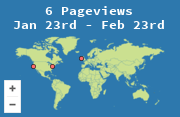The South Africa Department of Education has launched a new system aimed at tracking the movements of pupils from school to school. Called the Learner Unit Record Information and Tracking System (LURITS), the system will assign each pupil a unique tracking number that will remain with the pupil throughout his or her school career, giving school officials accurate learner enrollment data according to the South African Minister of Education Naledi Pandor.
The intention of the system is to collect the unit record data of each learner in the country from Grade R to Grade 12 and to track the movement of each learner from school to school throughout their school careers and to keep a history of each learner in the system. The system will also be able to identify individual learners who have left the system and will be able to compile accurate profiles of these learners.
To read more on the Learner Unit Record Information and Tracking System (LURITS) Click Here!
Filed under: Edu News (South Africa), Minister of Education South Africa | Tagged: keeping record, Learner Unit Record Information and Tracking System, learners, LURITS, movement, pupils, recording data, school career, Schools, South Africa, students, tracking | 1 Comment »








